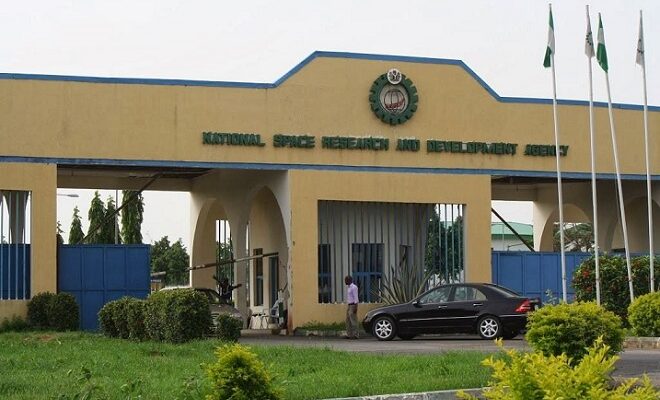398
By Daniel Adaji
The National Space Research and Development Agency (NASRDA), in collaboration with international partners, has endorsed the use of digital monitoring tools like CropWatch to combat hunger and improve food security across West Africa.
The endorsement came at the opening of a three-day regional training workshop in Abuja on Tuesday, organised by NASRDA in partnership with the Aerospace Information Research Institute of the Chinese Academy of Sciences (AIRCAS) and supported by the Alliance of International Science Organizations (ANSO).
Speaking on behalf of NASRDA’s Director General, Dr. Matthew Adepoju, a director in the agency, Dr. Alaga Adebayo emphasised the agency’s dedication to global hunger eradication, especially through satellite-based agricultural solutions.
“NASRDA is committed to the Sustainable Development Goals, particularly Goal 2 creating a world free of hunger by 2030. Our collaboration with AIRCAS on the CropWatch platform will expedite the development of satellite-based information required to achieve zero hunger sooner than expected,” Adepoju said.
“This training represents a significant milestone. It reflects our collective commitment to harness space technology for sustainable agricultural development,” he said.
The workshop titled “Empowering Agriculture Extension Workers for Food Security: The Role of CropWatch ICP in Enabling Agricultural Monitoring and Stabilising Food Productivity in West Africa” brings together stakeholders from West African nations including Ghana, Liberia, Côte d’Ivoire, and Guinea.
Participants will undergo training on how to interpret satellite data for early warning systems, monitor crop growth, predict yields, and influence regional agricultural policy using the CropWatch system. The technology leverages remote sensing, artificial intelligence, and big data for agricultural insights.
“This training is not just about technology. It is about empowering our nations with the tools to make data-driven decisions that will improve livelihoods and ensure sustainable food systems,” he said.
Coordinator of CropWatch Nigeria, Dr. Rakiya Babamaaji highlighted the strategic importance of collaboration. She noted that Nigeria and Mozambique currently boast the most advanced CropWatch dashboards in Africa, leading to Nigeria’s selection as the West African hub for the regional center.
“Because of how we executed CropWatch, Nigeria was chosen to host the regional center. The essence of this training is to show we are ready to support all West African countries. We approached our partners – ANSO and AIRCAS – because collaboration is the only way forward,” Babamaaji said.
Speaking on behalf of the Nigeria Integrated Water Resources Management Commission, Sakinatu Jimeta emphasised the link between agriculture and water sustainability.
“Water is life, and its judicious management is essential for sustainable agriculture. The CropWatch ICP is a valuable tool in this endeavor,” she said.
Director General of AIRCAS, Professor Wu Yirong underscored the global importance of agricultural monitoring and expressed optimism about local capacity development.
“We want more young talents from Nigeria and across West Africa to understand how to use satellite data to monitor crops. This regional center will serve not just Nigeria but the entire West African region,” he said.
A representative from Ghana’s Space Science and Technology Institute, Dr. Kofi Asare, praised the initiative and stressed the urgency of digital agriculture in the face of climate change.
“Once you digitalize agriculture, you attract youth and build resilience. CropWatch helps farmers monitor their crops, assess risks, and improve yields backed by scientific evidence,” he said.
The CropWatch Regional Center in Abuja serves as a hub for data, training, and technical support to West African countries in their efforts to build resilient, technology-driven food systems.



